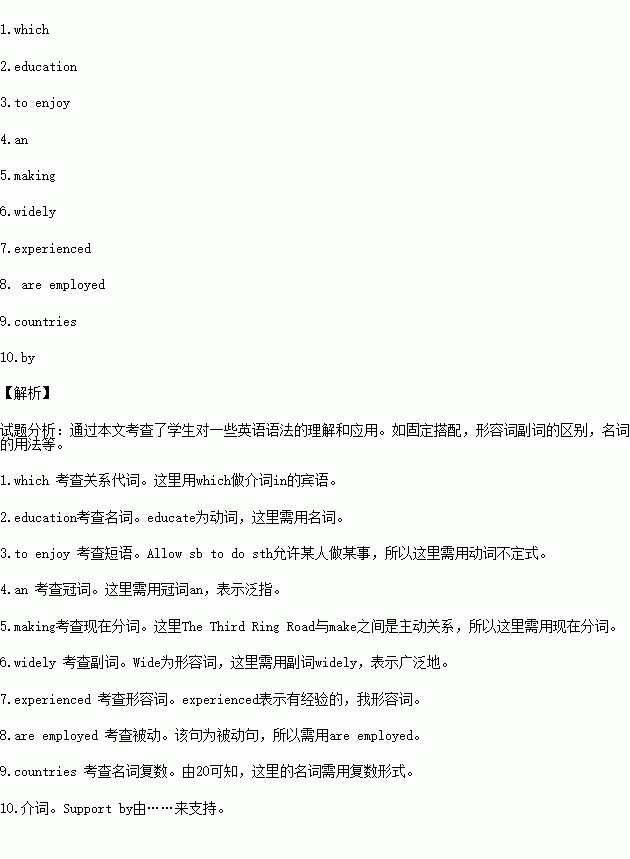题目内容
阅读下面材料,在空白处填入适当的内容(1个单词)或括号内单词的正确形式。
Founded in Yan’an in 1941, Beijing Foreign Studies University (BFSU) is now a famous university located in the Haidian District of Beijing, a place in 1. the key institutions of higher 2. (educate) are concentrated. Excellence in foreign language teaching has allowed BFSU 3. (enjoy) a good fame for quality in teaching and research activities.
The university campus occupies 4. area of 304,553 square meters, with a student dormitory area of 40,000 square meters and a library of 9,997 square meters. The Third Ring Road runs through the center of the university campus, 5. (make)transportation very convenient. The university is 6. (wide) known as Beiwai in Mandarin and BFSU in English.
BFSU has over 600 highly-qualified and 7. (experience) staff members. Each year approximately 120 teachers and experts 8. (employ) from more than 20 9. (country) to teach at BFSU. BFSU is a member of Project 211, a university development program supported 10. the Ministry of Education.
 愉快的寒假南京出版社系列答案
愉快的寒假南京出版社系列答案
